New Narratives: The Role of Creativity and Culture in Tackling Loneliness

Through New Narratives, we’ll explore the multi-faceted nature of loneliness by sharing insights and stories from as many perspectives as possible, not only to help bridge the gap between isolation and connection but to also enrich our community’s understanding of loneliness.
Our latest narrative has been written by Victoria Hume from the Culture, Health & Wellbeing Alliance and Anna Woolf from London Arts and Health who will be speaking at our webinar ‘Creative Connection: How the arts can tackle loneliness’ on Monday 19th May, 2025.
London Arts and Health is a free-membership sector support organisation that supports artists, creative practitioners and health professionals across the whole of London and beyond. The Culture, Health & Wellbeing Alliance is similarly a free-to-join membership organisation for creative health across England, from our home in Barnsley, South Yorkshire. As organisations we often work in partnership, and both provide networked, collaborative advocacy, support and resources for our members and the wider field of creative health.
Creative health – or arts and health – is a concept and practice that has been steadily growing in strength and visibility at the same time as a rising crisis in our health and care. It’s a wide area and can include visual and performing arts, crafts, film, literature, cooking and creative activities in nature, such as gardening; approaches may involve creative and innovative ways to approach health and care services, co-production, education and workforce development.
Creative health can be applied in homes, communities, cultural institutions and heritage sites, and healthcare settings. This work contributes to the prevention of ill-health, promotion of healthy behaviours, management of long-term conditions, and treatment and recovery across the life course.
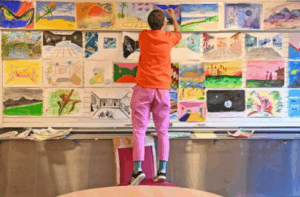
Tackling loneliness is fundamental to creative health. We know that the two groups most vulnerable to loneliness are older people and young people – with the ONS Community Life Survey now consistently finding that adults aged 16-24 report feeling lonely more often than other age groups. Importantly, loneliness also aligns with structural inequities, and increases in groups who experience discrimination, whether through age, class, heritage, gender or sexuality.
“Loneliness is painful; it also kills. The WHO claims that loneliness is a bigger killer than a
lifetime of smoking or obesity, and perhaps a root cause of some other diseases such as Alzheimer’s and Dementia.” (Cottam, 2018, p.171)
Loneliness is very much a health issue: lonely people are more likely to suffer from dementia, heart disease and depression; one 2015 study even suggests loneliness is likely to increase your risk of death by 29% (Holt-Lunstad). The better news is that access to creativity and culture can address both the causes of loneliness (including the ‘social determinants’) as well as its health symptoms. Social activist Hilary Cottam in her book Radical Help explores simple solutions such as ‘Circle’, a service that helps older adults join creative activities, combat isolation and have a renewed sense of purpose, showing how simple to set up and scale these models of civic engagement are. And, most importantly, how they can combat the effects that loneliness can have.
The role of the arts in tackling loneliness has never been clearer than during the Covid lockdowns.
CHWA collected 50 case studies across arts, culture & heritage organisations working with people shielding or vulnerable at home during covid; together these case studies reached over 100,000 people using phone, post and online work. 94% of this work was conducted in partnership – with community sector organisations, the NHS and local authorities. This represented a step change in the way arts organisations and freelancers were working with partners to reach people in need and has had a significant long term impact on how people work.
In Derbyshire, for example, arthur+martha and Arts Derbyshire developed a project in which artwork, creative writing & song passed between tellers, each building on previous contributions to add to the whole, a technique arthur+martha had previously used successfully in hospitals: combating isolation, constructing group narratives, reflecting many voices. Originally conceived to engage with isolated housebound people aged 65+ in rural Derbyshire, its reach expanded during lockdowns. One participant explained that
“it’s helped me deal with lockdown … Trying to think and digest and let it filter in. Or else you drown in your own thoughts, don’t you? If you’re left alone with them too long.”
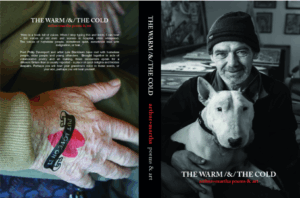

In 2019 and 2020 two significant research summaries were published, both of which recognised the role of creative and cultural work in reducing loneliness. A 2019 scoping review conducted for the World Health Organization looked at over 9,000 peer reviewed papers across Europe and Russia and concluded that “the arts… provide a recognised way of reducing loneliness and social isolation, particularly among people living in rural or disadvantaged areas” (Fancourt & Finn 2019).
This same review breaks down the ingredients of arts interventions – helping us to understand that the combination of sensory activation, imagination, social activity, emotional and cognitive stimulation – and more – offers an opportunity to tackle intractable problems in prevention and management of ill-health. The following year, the Department for Culture, Media & Sport then commissioned an evidence summary to help guide policy. This again reported “strong evidence” that the arts could “enhance social cohesion, including reducing individual loneliness and isolation”.
The Knife Angel is a Gloucester-based project addressing serious challenges to youth health and wellbeing – using different artforms to connect young people, it’s success has led to a year-long engagement, evolving into an album launch, series of performances, professional development and peer advocacy. The Knife Angel recently won CHWA’s Collective Power Award for the strength of its partnerships across the city, creating rich opportunities for the young people to feel connected and empowered. It also epitomises the ways in which creative practice can engage with health inequalities. It’s crucial that creativity is used not to paper over the cracks in our society, but to tell the stories of what happens to people when we allows these fractures to deepen.
The arts can offer people who have received poor treatment from statutory services or been the targets of discrimination and stigma a chance to tell this story, to make community and meaning out of extremely difficult experiences.
The Lights Out installation features the voices and sounds of local young people interested in social change, whose lives have been affected by the issues raised by the Knife Angel sculpture.
In London, we have recently seen a brilliant brand-new building open in Havering, North East London with the potential to provide not only health services but also use creative health to combat loneliness. Opened by NHS North East London Health and Care Partnership in November 2024, St George’s Health and Wellbeing Hub is a future-orientated model of integrated care. The hub works across social, health and voluntary sectors to encourage, develop and maintain physical, mental and social health, wellbeing and independence.
From the outset, the arts were envisaged as a pillar of the St George’s Health and Wellbeing Model. Keen to explore this further, St George’s Partnership Board commissioned this strategy from Dr Rebecca Gordon-Nesbitt, with funding from Arts Council England and additional support from McLaren Construction Group, Northmores and Capsticks administered by London Arts and Health. The upcoming strategy launching June 2025 will provide a framework for introducing the arts into St George’s and its services.
The hub aims to utilise creative health to address loneliness and isolation through a planned programme of activities, woven into the social prescribing offer alongside partners such as Havering Music School and Creative Health Havering. Havering has the oldest population in London with 48% of one-person households occupied by people over 65. The hub has community gardening space, corridors and meeting spaces and a cafe in which to offer a programme of activities offering a whole person approach to care, connection and community.
The recent Creative Health Review published by the All-Party Parliamentary Group for Arts, Health & Wellbeing in December 2023, explains that “Creative health is an integral part of community and place-based approaches to reducing health inequalities. …. Creative activities build social capital and connection, and provide individuals with a sense of agency, meaning and purpose. Through creative health people and communities can be empowered to make positive changes and improve quality of life.”
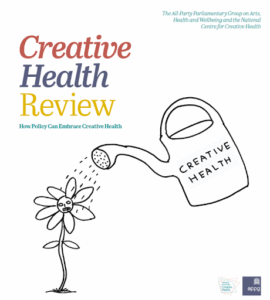
Kelly Mclaughlin, a Community Organiser with East Marsh United based in Grimsby, explains in the Review that “Creativity is so much more than just doing arts. For some it helps rescue them from their darkest days. For me, it helped me be part of a community, helped me to be heard, helped give me my voice back, and I’m proud to say I’m now a community organiser.”
Biography:
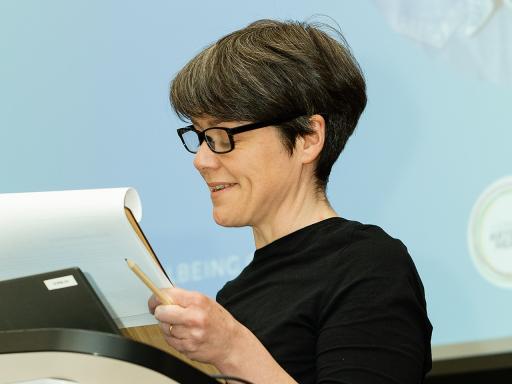
Victoria Hume, Culture, Health & Wellbeing Alliance
Victoria was an arts manager in the NHS for 15 years before pursuing arts in health in South Africa for 5 years, including setting up a new module in hospital-based performance for the University of the Witwatersrand and managing a three-year, Wellcome-funded drama and diabetes programme with Chris Hani Baragwanath Hospital in Soweto. She is also a composer and researcher specialising in culture, health and wellbeing, and has a Masters in Music and Health Communication focused on hospital-induced delirium. She continues to write and release music through Lost Map Records, based on Eigg.
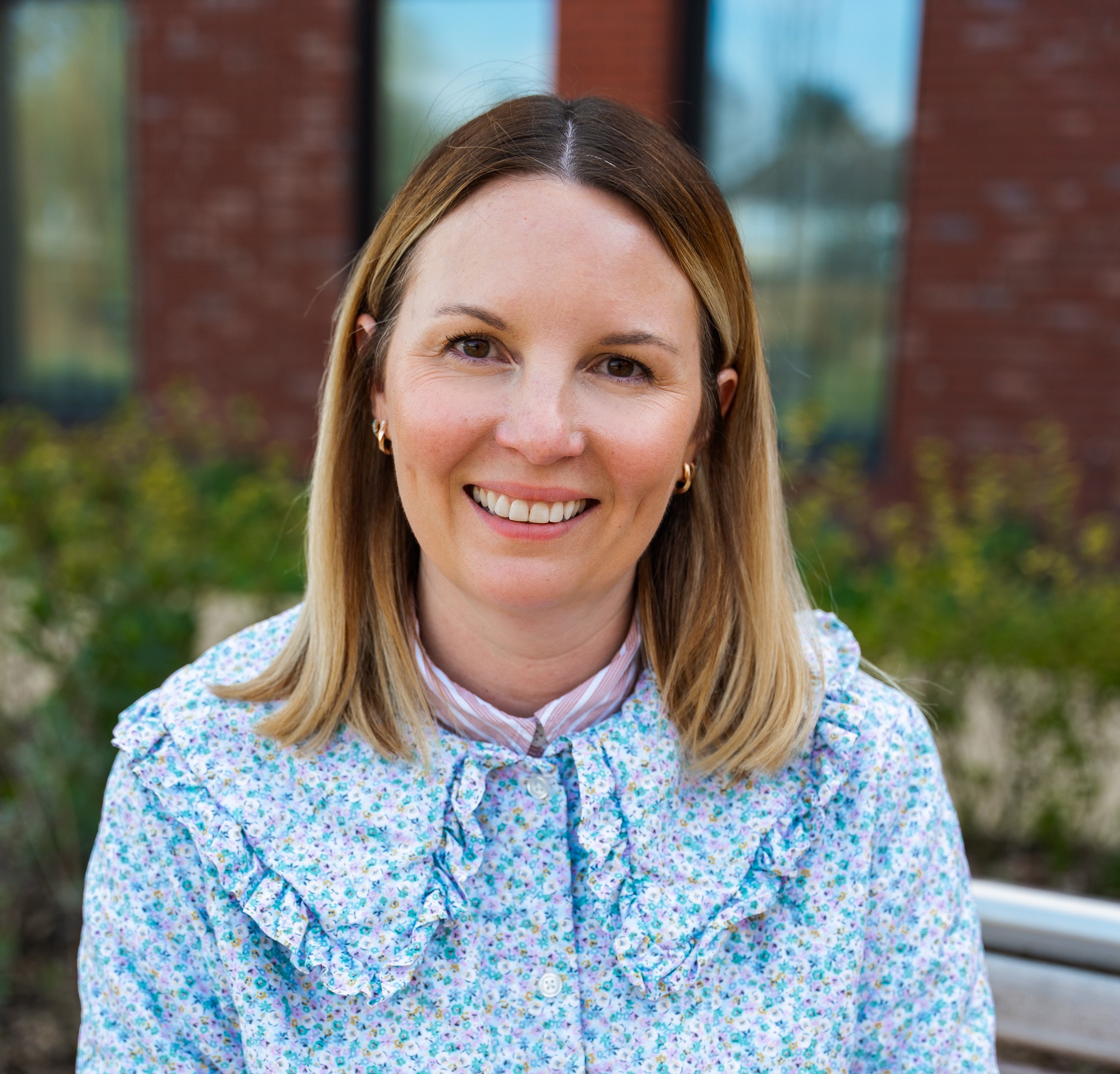
Anna Woolf, London Arts and Health
Anna Woolf FRSAis London Arts and Health’s CEO. Anna has lived experience of birth trauma and has worked with UCH maternity (2018) Tea and Toast: Poems for New Mums, Maternal Journal Maternal Journal (2021) and The Mum Poem Press (2021) Songs of Love and Strength exploring this topic. Anna is a Fellow of the Royal Society of Arts and a member of the Royal Society of Public Health. She is a trustee for the National Rheumatoid Arthritis Society which was founded by her own Mother who has RA, 21 years ago as a patient-led charity, supporting people living with Arthritis.
Anna is also currently doing a part-time PhD at the Royal Central School of Speech and Drama and her project is in collaboration with young people who are experiencing invisible chronic illness. As well as being a freelance lecturer at RCSSD teaching undergraduates applied theatre and performing health, Anna also freelanced as a theatre practitioner and has worked with a range of organisations, such as Half Moon Young People’s Theatre, Box Clever Theatre, Talawa Theatre, Peer Productions and C&T Theatre to name but a few.
At London Arts and Health, Anna has driven content and ideas around cultural social prescribing, practitioner care and networking with key stakeholders in Creative Health across London. Anna authored the Cultural Social Prescribing Myth Buster, co-chairs the London Action on Creative Health stakeholder group and runs initiatives such as the Digital Sandpit for LAH.
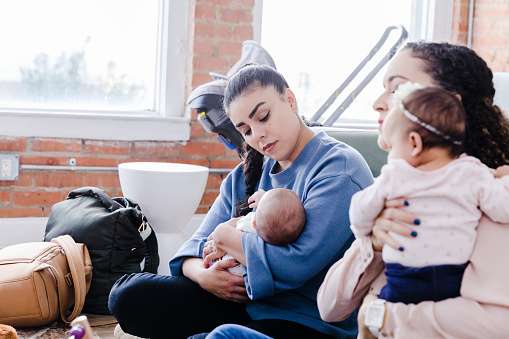

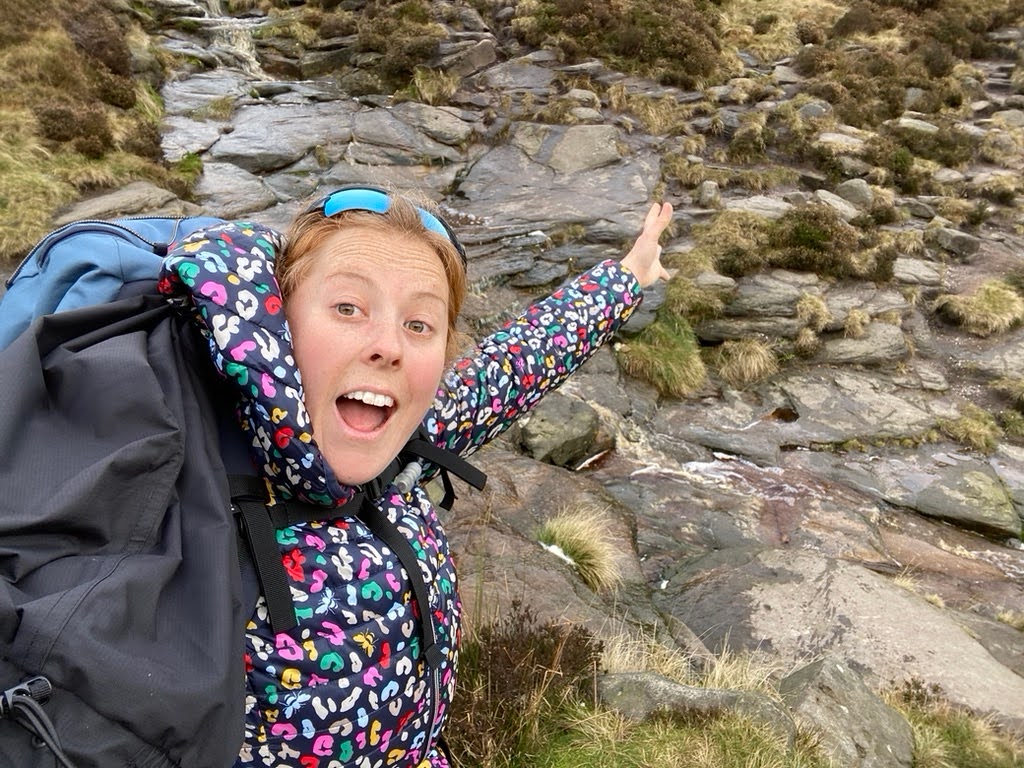
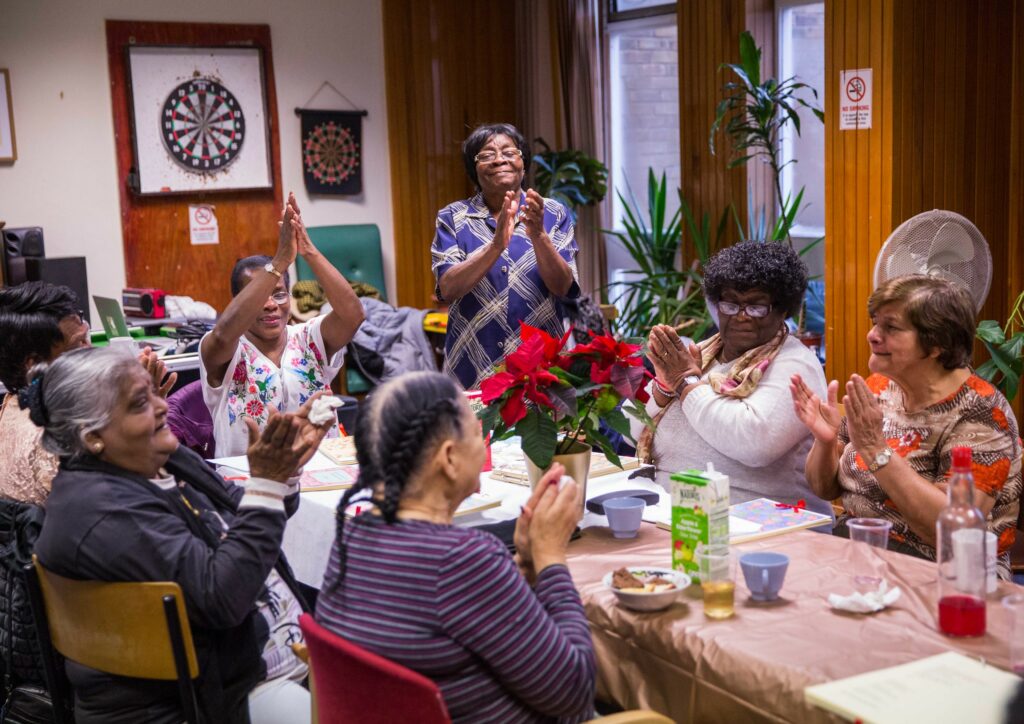
In Tower Hamlets we commission Magic Me for intergen arts projects https://magicme.co.uk/ recommended!